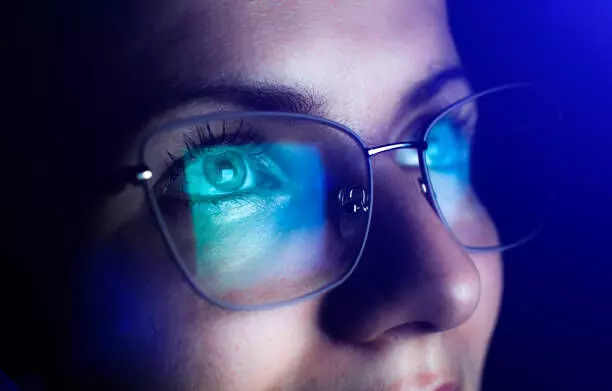
Blue-light blocking glasses may not impact eyestrain, sleep quality, says study
text_fieldsWashington: Wearing blue light-blocking eyewear does not have any impact on computer-related eye strain or sleep quality, according to an analysis of 17 randomized controlled trials by researchers.
The studies included in the analysis did not specifically examine these outcomes, leading to a lack of evidence to substantiate the idea that blue-light-filtering lenses offer protection against harm to the retina, the light-sensitive tissue located at the back of the eye.
Since the early 2000s, the use of blue-light filtering lenses, commonly referred to as blue-light blocking eyewear, has become increasingly recommended, often by optometrists.
A group of researchers from the University of Melbourne, in collaboration with colleagues from City, University of London, and Monash University, conducted this recent review. The findings were published in the Cochrane Database of Systematic Reviews.
The primary aim of the research team was to assess the advantages of blue-light-blocking lenses in comparison to regular non-blue-light-blocking glasses. They aimed to evaluate improvements in visual performance, protection of the retina, and enhancement of sleep quality.
 Also Read: Two-thirds of marine animals have microplastics in tissues: study
Also Read: Two-thirds of marine animals have microplastics in tissues: study
The analysis encompassed data from a comprehensive selection of 17 randomized controlled trials spanning six different countries. The participant numbers in these trials varied from as few as five to as many as 156. The evaluation periods for the lenses ranged from a few hours to five weeks.
Associate Professor Laura Downie, a Dame Kate Campbell Fellow and the Head of the Downie Laboratory: Anterior Eye, Clinical Trials, and Research Translation Unit at the University of Melbourne in Victoria, Australia, is the senior author of this review.
The research did not uncover consistent reports of adverse effects resulting from the use of blue-light filtering lenses. Any reported effects tended to be mild, infrequent, and temporary in nature.
These effects included discomfort while wearing the glasses, headaches, and slight changes in mood. Such effects were likely associated with wearing glasses in general, as similar effects were observed with non-blue-light filtering lenses.
According to the researchers, the blue-light filtering lenses typically filter out about 10-25 per cent of blue light, depending on the specific product.
Filtering out higher levels of blue light would require the lenses to have an obvious amber tint, which would have a substantial effect on colour perception, they added.
 Also Read: Playing football linked to increased risk for Parkinson's disease, says study
Also Read: Playing football linked to increased risk for Parkinson's disease, says study























